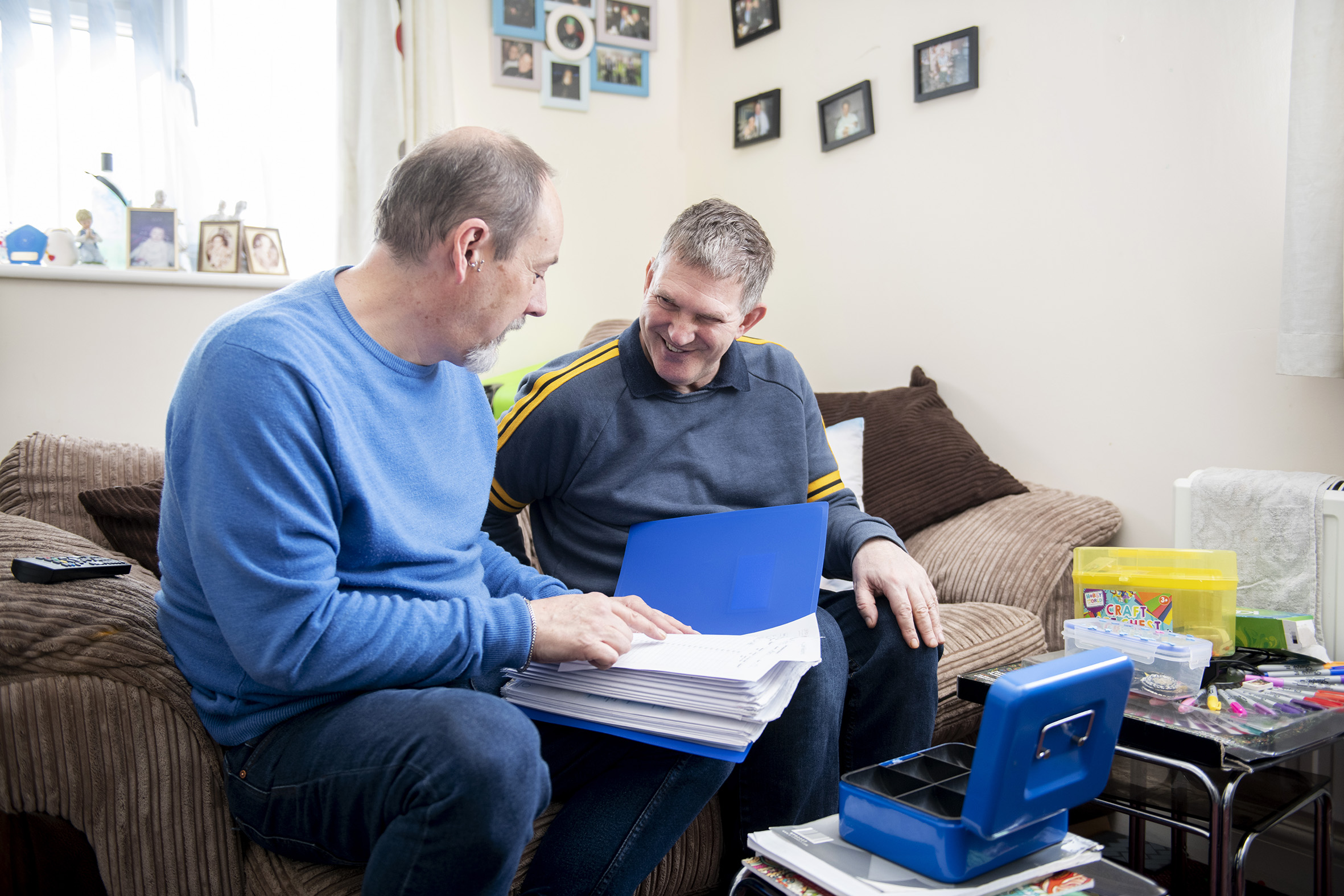Services
What is Supported Living?
Everyone deserves a home to feel proud of. But our supported living isn’t just about modern, homely surroundings. It’s about providing support that fits seamlessly around you, with uniquely rewarding relationships that will help to build your confidence and independence. We provide supported living that helps people to gain more control over their lives, encouraging them to be confident and happy to make their own choices and decisions.

What is supported living?
Supported living refers to a housing arrangement and support model designed to help individuals with disabilities, mental health challenges, or other special needs live as independently as possible within their communities. The primary goal of supported living is to provide individuals with the necessary assistance and resources to lead fulfilling lives while having control over their own living situations and choices. In a supported living arrangement, individuals typically have their own private living spaces, such as apartments or houses, where they can maintain their privacy and independence. The level of support provided can vary widely based on the individual’s needs and preferences. Support may encompass various areas, including personal care, meal preparation, household chores, budgeting, transportation, social integration, and more.
Who is Supported Living for?
Supported Living is for people who want to be independent while receiving some support with day to day living due to:
Live-in care for individuals with dementia offers a range of benefits that can significantly enhance their quality of life and provide peace of mind for their families. Some of the advantages of live-in dementia care include:
Individuals with Disabilities: : This includes people with physical, intellectual, sensory, or developmental disabilities who may need varying levels of support to manage daily tasks, engage in community activities, and maintain their well-being.
People with Mental Health Challenges: Individuals dealing with mental health conditions such as schizophrenia, bipolar disorder, depression, or anxiety may benefit from supported living services to help them manage their symptoms, maintain stability, and avoid isolation.
Elderly Individuals: Older adults who require assistance with activities of daily living, but still want to live independently, can benefit from supported living arrangements that provide the necessary support while respecting their autonomy.
Youth Transitioning from Foster Care: Young people ageing out of the foster care system may need support as they transition to adulthood and independence. Supported living can offer guidance and resources during this crucial phase.
Individuals with Acquired Disabilities: People who have acquired disabilities due to accidents, injuries, or medical conditions may need support to adapt to their changed circumstances and continue living independently.
Individuals with Complex Medical Needs: Those with significant medical needs may require specialised support to manage their health, medications, and medical equipment while maintaining their independence.
Individuals with Autism Spectrum Disorder: People on the autism spectrum may benefit from supported living arrangements that cater to their specific needs for routines, sensory sensitivities, and social interaction.
Individuals Reintegrating from Institutional Care: People transitioning out of long-term care facilities, group homes, or institutions may require supported living services to reintegrate into their communities.
People in Recovery: Individuals recovering from substance abuse or addiction may need support to establish stable living environments and maintain their sobriety.
Supported living is highly adaptable and customisable, and its suitability depends on the individual’s unique circumstances, goals, and preferences. The primary objective is to provide the right level of assistance that allows individuals to live as independently as possible while ensuring their safety, well-being, and integration into their communities.
How do we create our supported living plans?
Creating a supported living plan involves a collaborative and person-centred process that considers the individual’s unique needs, preferences, goals, and circumstances. Here are the general steps involved in creating a supported living plan:
- Assessment
- Goal Setting
- Personalised Plan
- Support Services
- Daily Routine
- Community Integration
- Healthcare and Well-being
- Communication Plan
- Training and Skill Development
- Review and Update
- Involvement of Stakeholders
- Documentation


What is important when choosing supported living accommodation?
Choosing the right supported living accommodation is a crucial decision that involves considering various factors to ensure that the individual’s needs, preferences, and goals are met. Here are some important aspects to consider when selecting supported living accommodation:
Location: : The location of the accommodation is significant. Consider proximity to family, friends, community resources, medical facilities, public transportation, and other essential amenities.
Type of Accommodation: Supported living accommodations can vary widely, from individual apartments or shared houses to more specialised settings. Choose the type of accommodation that aligns with the individual’s preferences and comfort level.
Level of Support: Determine the level of support needed based on the individual’s assessment and goals. Some individuals may require 24/7 on-site support, while others might need less intensive assistance.
Personalisation: Look for accommodations that allow for personalisation and customisation. Individuals should be able to bring their own belongings and create a space that feels like home.
Accessibility: If the individual has mobility challenges, ensure that the accommodation is wheelchair accessible and meets their specific accessibility needs.
Safety and Security: Prioritise accommodations that are safe and secure. This includes considering factors such as building security, emergency response systems, and neighborhood safety.
Staff Qualifications: Enquire about the qualifications and training of the support staff who will be assisting the individual. Well-trained and experienced staff are essential for providing quality care.
Community Integration: Choose accommodations that offer opportunities for community integration. This could include access to nearby social activities, community centres, and public spaces.
Daily Living Needs: Consider how the accommodation supports daily living needs, such as meal preparation, laundry facilities, and personal care.
Privacy and Independence: Ensure that the accommodation allows for privacy and independence while also providing the necessary support when needed.
Budget: Evaluate the cost of the accommodation and support services. Determine whether the individual’s funding sources, such as government programs or personal funds, align with the costs.
Cultural and Social Fit: Consider whether the accommodation and its surrounding community align with the individual’s cultural background, interests, and social preferences.
Flexibility: Choose accommodations that allow for flexibility in terms of adjusting the level of support and services as the individual’s needs change over time.
Family and Support Network: Involve the individual’s family and support network in the decision-making process. Their input and perspectives are valuable.
Visit and Assess: Whenever possible, visit potential accommodation in person to assess their suitability firsthand. This can help you get a feel for the environment and the level of comfort it provides.
Regulatory Compliance: Ensure that the chosen accommodation complies with local regulations and standards for supported living.
Trial Period: If possible, consider arranging a trial period for the individual to stay in the accommodation before making a long-term commitment. This can help both parties assess compatibility.
What is moving into supported living like?
Moving into supported living can be both an exciting and potentially challenging transition, depending on the individual’s circumstances, needs, and emotions. The experience can vary widely based on factors such as the person’s level of independence, their support network, the nature of the supported living arrangement, and their overall readiness for the change.




